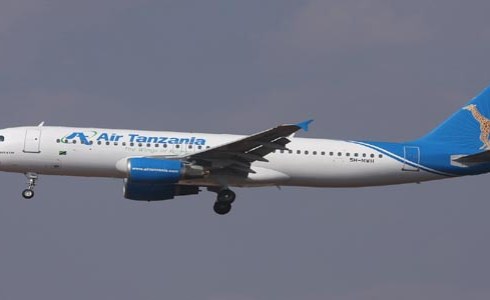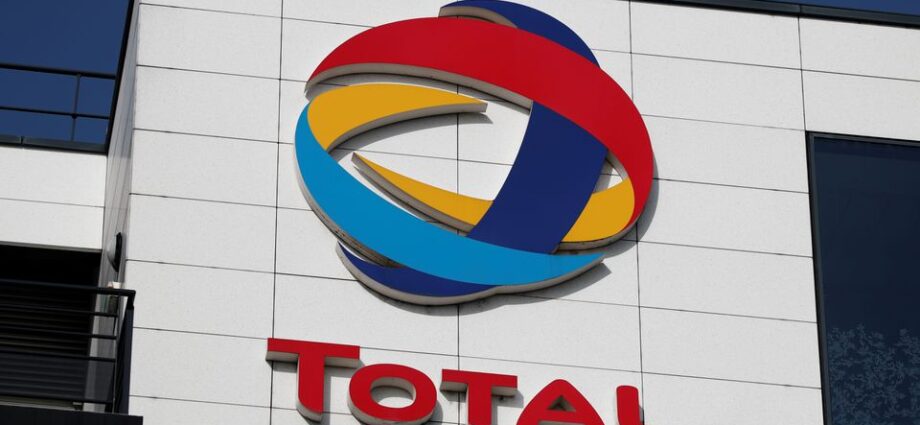The French energy giant TotalEnergies appeared in a Paris court after years of delay in a case in which six NGOs accuse it of “failing in its duty of vigilance” on two massive oil drilling and pipeline projects in Uganda and Tanzania.
The French organisation Survie, along with Friends of the Earth and four Ugandan NGOs, accuse TotalEnergies disregarding human rights and the environment as it moves forward with the massive infrastructure deals.
The “Tilenga” 419-well drilling project in Uganda, which is partly located in a natural park, and the East African Crude Oil Pipeline (EACOP) project are intended to transport hydrocarbons to the Indian Ocean by crossing 1,400 kilometres of Tanzania.
Once built, EACOP will be the longest oil pipeline in the world.
The NGOs are calling on the company to comply with a 2017 French law passed that compels multinationals to respect “duty of care” regarding their activities.
The legislation obliges TotalEnergies to “prevent serious violations of human rights, health and safety of people and the environment” when dealing with foreign subcontractors and suppliers through a “vigilance plan” that must map risks and establish measures to prevent them.
The core elements of the case will finally be examined three years after filing this first-ever lawsuit based on the pioneering French law on the duty of vigilance of transnational corporations, adopted in 2017.
Court case hindered by technicalities
The case has been delayed for three years due to a procedural battle that TotalEnergies eventually.
The active phase of the project began in February, and oil production in Uganda is due to start in 2025, despite condemnation of the project by the European Parliament, four United Nations special rapporteurs and numerous political leaders and associations.
Wednesday’s hearing in Paris – which was attended by several associations and politicians, including the MPs who instigated the law – is the first to be held on the merits of the case before the courts since the legislation was passed by the French parliament five years ago.
The NGOs’ lawyer, Louis Cofflard told the court he regretted that TotalEnergies had not taken advantage of the past three years of proceedings to “commit itself and comply with its obligations”, adding that there was a “certain form of cynicism” on the part of the oil and gas group.
Outlining the alleged shortcomings of TotalEnergies’ vigilance plan, he expressed his regret that it did not include “the environmental risks and climate impacts associated with the project”.
Land seizures
Lawyer Céline Gagey, on behalf of Survie, listed the reasons for opposition to the projects and the damaging statistics that lie at the heart of the case.
Some “118,000 partial expropriations [of land] are necessary” she said, but the people who need to be compensated – often small farmers – are “deprived of the right to work their land before receiving any compensation.”
The court heard that some 28,000 people are still waiting for compensation and TotalEnergies is not taking any measures to prevent thousands of farmers from being deprived of the right to use their land.
Gagey called on the court to order the group to pay them immediately.
TotalEnergies: NGOs are ‘obstinate’
TotalEnergies’ lawyer, Antonin Lévy, said he could have “spent five hours denouncing the failings” and untruths of the NGOs, but preferred to focus on “the inadmissibility of their claim.”
He noted that the summons issued in 2019 was aimed at the 2018 vigilance plan – which has since evolved.
Plus, he argued that that the Paris court cannot take extra-territorial action, maintaining that the project is led by TotalEnergies Uganda, a subsidiary of the French group.
The NGOs want to put “TotalEnergies, Tilenga and EACOP, Tanzania, Uganda and their leaders on trial”, he said, denouncing the “obstinacy in trying to be the emblematic case, the one that will perhaps set a precedent, to the detriment of the populations concerned.”
The case will be deliberated by the court until 28 February 2023.
Source: allafrica.com
Share this news
This Year’s Most Read News Stories

European Union Bans Air Tanzania Over Safety Concerns

Kampala — The European Commission added Air Tanzania to the EU Air Safety List, banning the airline from operating within European Union airspace. This decision follows the denial of Air Tanzania’s Third Country Operator (TCO) authorization by the European Union Aviation Safety Agency (EASA), citing significant safety deficiencies.
The EU Air Safety List includes airlines that fail to meet international safety standards. Commissioner Tzitzikostas emphasized the importance of passenger safety, stating: “The decision to include Air Tanzania in the EU Air Safety List underscores our unwavering commitment to ensuring the highest safety standards. We strongly urge Air Tanzania to take swift action to address these safety issues. The Commission has offered its assistance to Tanzanian authorities to enhance safety performance and achieve compliance with international aviation standards.”
Air Tanzania joins several African airlines banned from EU airspace, including carriers from Angola, the Democratic Republic of Congo, Sudan, and Kenya. Notable names include Congo Airways, Sudan Airways, and Kenyan carriers Silverstone Air Services and Skyward Express. The ban reflects the EU’s strict approach to aviation safety worldwide.
Source: allafrica.com

US taps Tanzania for infrastructure plan in battle with China for minerals
Washington wants to tap into the country’s minerals, particularly its nickel mines.Continue Reading

‘Pilot error’ caused Precision Air crash
Reports says prevailing poor weather led to the pilots failing to heed warning signals.Continue Reading











